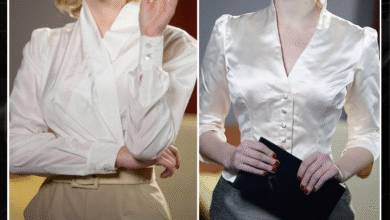Why Tim Burton Only Trusted Johnny Depp for Willy Wonka—and What Other Stars Were Almost Cast!
OPINION: This article may contain commentary which reflects the author's opinion.
Johnny Depp’s casting as Willy Wonka in Tim Burton’s 2005 adaptation of Charlie and the Chocolate Factory marked a pivotal moment in both Depp’s and Burton’s careers. Known for their long-standing creative partnership, Depp and Burton worked together once again, with Depp accepting the role of the eccentric chocolate factory owner without even reading the script. This decision, driven by trust in Burton’s vision, speaks to the deep professional relationship between the two, built over previous successful collaborations. However, Depp’s portrayal of Wonka would go on to be one of the most unique interpretations of the character in cinematic history, distancing itself from Gene Wilder’s iconic performance and instead embracing a much more eccentric, oddball approach.
Depp’s Immediate Acceptance and Burton’s Vision
Depp’s decision to take on the role of Willy Wonka was driven by his admiration for Tim Burton’s creative genius. According to The Roald Dahl Wiki, Depp was the only actor Burton seriously considered for the part, with Dwayne “The Rock” Johnson as a potential backup in case Depp was unavailable. The fact that Depp didn’t hesitate to take the role—without even reading the script—shows his implicit trust in Burton’s vision. This was an unusual move, especially given the high-profile nature of the character. It also marked a significant shift in the casting process, as Burton no longer faced the studio pressure that had previously characterized his decisions. This shift was likely due to the immense success of Pirates of the Caribbean (2003), which had cemented Depp’s status as a major box office draw.
Depp’s confidence in Burton’s direction and his previous collaborations with the director (including Edward Scissorhands, Ed Wood, and Sleepy Hollow) made him eager to join the project. While Depp didn’t explicitly state that it was an “immense honor” to work with Burton again, the history of their collaborations suggests a deep respect for each other’s creative visions. This context underscores the trust and synergy between the actor and director, which would inform the portrayal of Wonka.
Inspirations Behind Depp’s Unique Wonka
Depp’s portrayal of Willy Wonka stood in stark contrast to Gene Wilder’s beloved interpretation in the 1971 film. Burton and Depp consciously sought to create a distinct character, inspired by a combination of unconventional sources. As detailed in The Roald Dahl Wiki, one of the most significant influences came from children’s television show hosts such as Bob Keeshan from Captain Kangaroo, Fred Rogers of Mister Rogers’ Neighborhood, and Al Lewis from The Uncle Al Show. These personalities, while warm and friendly on the surface, were also marked by a certain oddity and eccentricity that Burton and Depp found fascinating. Burton recalled how these childhood figures had “bizarre but lasting” impressions on him, which informed the creation of Wonka’s strange yet charismatic personality.
A particularly interesting influence came from Vogue editor Anna Wintour. Depp’s physical portrayal of Wonka included an exaggerated bob cut and dark sunglasses, which he based on Wintour’s signature look. This fashion-forward interpretation brought a unique flair to the character and showed Depp’s commitment to injecting new, unexpected elements into Burton’s characters. These influences, ranging from children’s TV personalities to high fashion, showcased Depp’s dedication to creating a Wonka that was anything but ordinary.
The Polarizing Reception
Upon its release, Charlie and the Chocolate Factory sparked divided opinions, particularly regarding Depp’s portrayal of Willy Wonka. Critics and audiences were divided: some felt his performance was unsettling and too bizarre, while others appreciated the fresh take on the beloved character. Renowned film critic Roger Ebert expressed some reservations, suggesting that Depp’s portrayal was one of the weaker aspects of the film, but many others admired the boldness and originality he brought to the role.
The film itself was a box office success, grossing over $475 million globally, and Depp’s performance was central to its allure, even if it didn’t win universal approval. Some critics praised Depp for embracing the eccentricities of the character, offering a portrayal that was unique and multi-dimensional. His version of Wonka was more childlike, socially awkward, and slightly unsettling, providing a stark contrast to the more charming, grandfatherly Wonka portrayed by Wilder.
The Context of Burton’s Casting Choices
Before Depp’s casting, Warner Bros. had considered a variety of actors for the role, including the likes of Ben Stiller, Mike Myers, John Cleese, Patrick Stewart, and Will Smith. However, Burton’s decision to cast Depp was clear, and this marked a turning point in the franchise. Depp’s casting, despite its unorthodox nature, worked within the broader context of the film’s whimsical and dark atmosphere. Burton’s vision required a character who could transcend the traditional family-friendly portrayal of Wonka, and Depp’s unconventional approach to the role met that demand.
Conclusion: A Defining Collaboration
Johnny Depp’s portrayal of Willy Wonka is one of the most memorable and original performances in Burton’s storied filmography. While his decision to take on the role without reading the script initially seemed like a leap of faith, it ultimately exemplified the trust he placed in Burton’s creative direction. The influences behind Depp’s portrayal—ranging from children’s TV hosts to Anna Wintour—demonstrate his dedication to making the character his own. While the reception to his performance was mixed, Depp’s interpretation of Willy Wonka remains a testament to the actor’s commitment to pushing boundaries and reimagining iconic characters. In the end, Depp and Burton’s collaboration produced a take on Charlie and the Chocolate Factory that, even years later, stands out for its eccentricity and boldness.



